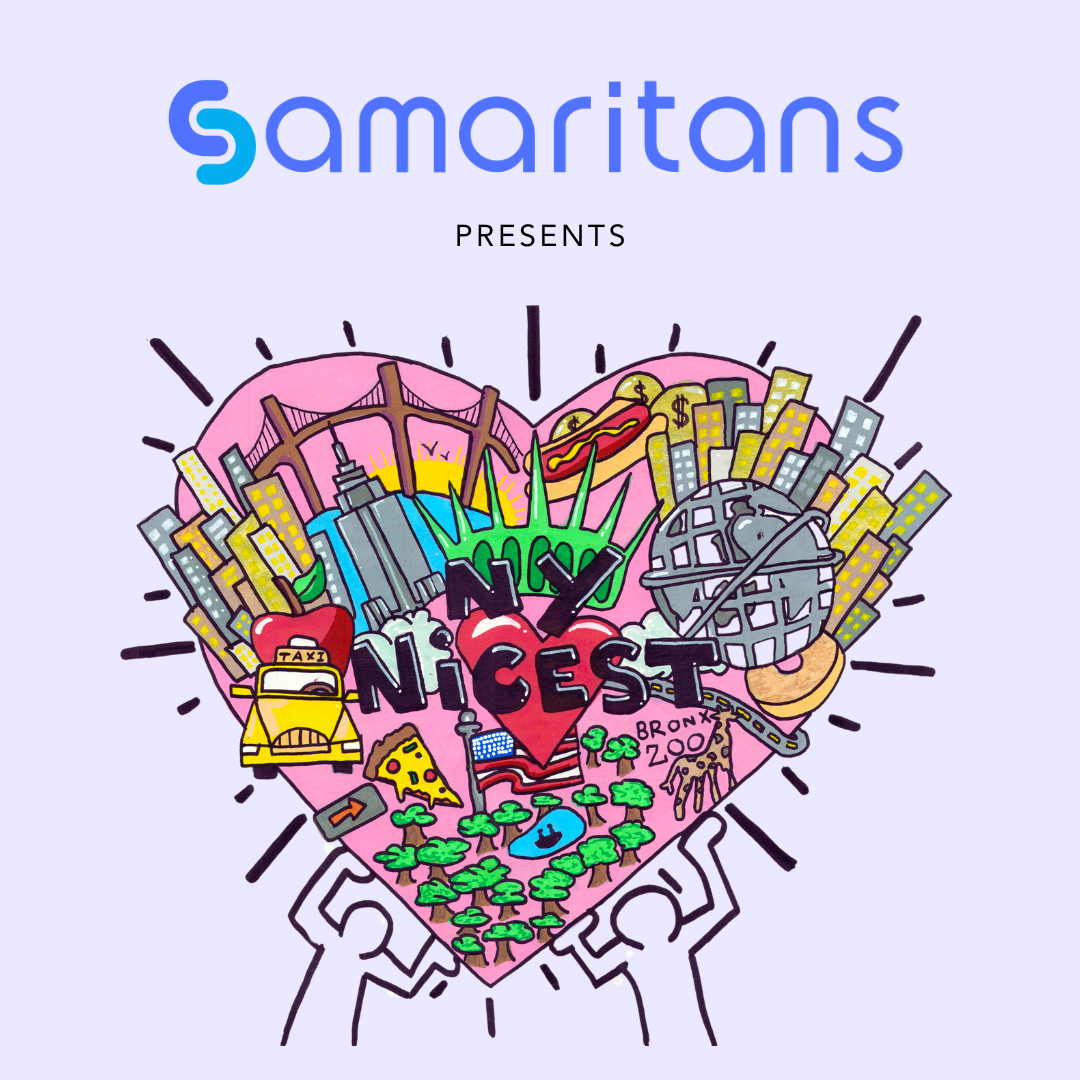samaritans presents

New York’s Nicest is awarded annually to an individual or group in recognition of their deep commitment to improving the quality of life for their fellow New Yorkers.
Recipients embody Samaritans’ befriending philosophy, practiced across the world at over 400 centers in 42 countries.
The core tenets of befriending aim to alleviate human misery, loneliness, x despair by offering non-judgmental support to those who feel they have no one else to turn to, and who yearn for understanding and acceptance.
New York’s Nicest 2024:
Meet this year’s suicide prevention champions!
NYC Council Speaker Adrienne E. Adams, Cheryl Hall and Charles Arrigo.

NYC Council Speaker
Adrienne E. Adams
Adrienne E. Adams, the first-ever African American Speaker of the New York City Council, leads the most diverse and first women-majority Council in the city’s history, also representing District 28 since 2017.
Under her leadership, the Council has tackled inequities, advancing women’s health, supporting crime victims, and addressing workforce disparities. She has been instrumental in passing legislation for maternal health, abortion access, and crime victim support at the neighborhood level.
Adams has also focused on housing, approving projects for over 12,000 units, with a significant portion being affordable, and establishing a Fair Housing Framework. Her tenure has seen the passage of critical police reform legislation, the plan to close Rikers Island, and initiatives for education equity.
Raised in Hollis, Queens, Adams is a Spelman College graduate and has worked in corporate training and childhood development. She began her public service on Queens Community Board 12, advocating for education and quality of life improvements.
A member of Alpha Kappa Alpha Sorority and active in community organizations, Adams is a dedicated wife, mother, and grandmother, deeply rooted in her community.
Her lifelong dedication to community service has guided significant investments and funding initiatives, reflecting her commitment to helping marginalized members of society.

NYC DOE Coordinator of Child Abuse and Maltreatment Prevention (Retired)
Cheryl Hall
Cheryl A. Hall, born in Guyana and the youngest of seven, moved to the U.S. with her sister Joy as a teenager. After graduating high school, Cheryl earned a Bachelor’s degree from Hunter College, and went on to obtain advanced degrees from Brooklyn College and the College of St. Rose in Albany.
Cheryl’s career is characterized by her deep commitment to safeguarding NYC’s children. She started as an Elementary School Counselor with the NYC Department of Education (DOE) in 1986, advocating for educational rights and empowering students facing unique and diverse challenges for over 17 years.
Cheryl trained as a Crisis Management Counselor and became nationally certified as a Senior Life Space Crisis Intervention Trainer. Her crisis intervention skills were not just utilized professionally but personally as she assisted both family and friends in times of distress.
Advancing in her career, Cheryl took on significant roles within the NYC Department of Education (DOE). She became a Senior Educational Administrator in the DOE’s Office of Guidance and School Counseling and ultimately served as the Citywide Coordinator of Child Abuse and Maltreatment Prevention.
In this capacity, she was responsible for overseeing all support service staff and ensuring that all mandated requirements and training initiatives related to student crises and suicide prevention were effectively implemented. Cheryl also held a prestigious position as a Governor on the Executive Board of the New York State School Counselors Association.
Now retired, Cheryl continues her commitment to education by providing staff development for NYC School Counselors and remains an active member of both the NYSSCA and the American School Counselors Association (ASCA).
Her retirement has also allowed her to travel extensively, including a trip to Tanzania to climb Mount Kilimanjaro and a return visit to her native Guyana after 50 years to immerse herself in the foods and culture that define her identity.

Verizon
Charles Arrigo
At Samaritans, we say, “Suicide prevention starts with me.” We all have a role to play, and you don’t have to be an expert in suicide prevention to make a difference; you just need to care enough to act.
Charles is living this call to action through his tireless and meticulous work in maintaining Samaritans’ phone system, ensuring that vital, life-saving calls are always answered. His commitment serves as a powerful reminder that the impact we can make often comes in unexpected ways and should never be underestimated.
By keeping these crucial lines of communication open, Charles serves as the initial spark that not only supports those in immediate crisis but also ignites a ripple effect of care and intervention, extending far beyond the initial call.
Charles’ actions exemplify the incredible power indirect contributions can have in addressing big issues, emphasizing how each individual effort helps build a community that is more supportive and resilient.


